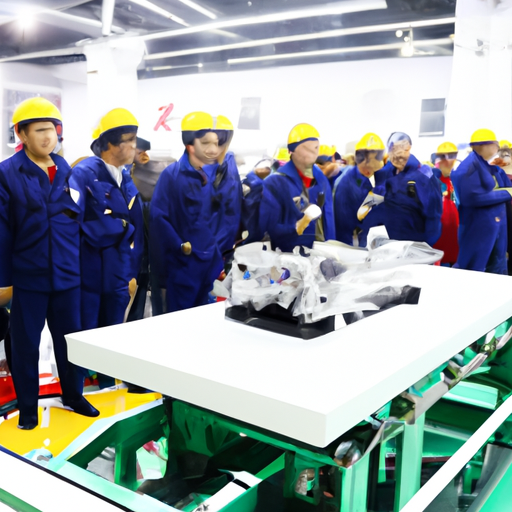1. Understand the product features: Before conducting product training, it is important to have a clear understanding of the characteristics and functions of cavity resonators, including their working principles, structural features, and application areas.

3. Master product knowledge: Understand the technical parameters, specifications, models, performance indicators, and other important information about cavity resonators to provide accurate product information and technical support to customers.
4. Practical operation training: Deepen understanding and mastery of the product through practical operation training, improve operational skills, and problem-solving abilities.
5. Analyze customer needs: Understand customer requirements and application scenarios to provide corresponding solutions and recommendations based on the actual situation of the customer.
6. Customer communication skills: Training personnel should have good communication skills and service awareness to establish good communication and cooperation with customers, solve their problems and meet their needs.
7. Regularly update knowledge: Cavity resonator product technology is constantly evolving, and training personnel need to regularly learn and update relevant knowledge to maintain competitiveness and service levels.
1. Understand the product features: Before conducting product training, it is important to have a clear understanding of the characteristics and functions of cavity resonators, including their working principles, structural features, and application areas.

3. Master product knowledge: Understand the technical parameters, specifications, models, performance indicators, and other important information about cavity resonators to provide accurate product information and technical support to customers.
4. Practical operation training: Deepen understanding and mastery of the product through practical operation training, improve operational skills, and problem-solving abilities.
5. Analyze customer needs: Understand customer requirements and application scenarios to provide corresponding solutions and recommendations based on the actual situation of the customer.
6. Customer communication skills: Training personnel should have good communication skills and service awareness to establish good communication and cooperation with customers, solve their problems and meet their needs.
7. Regularly update knowledge: Cavity resonator product technology is constantly evolving, and training personnel need to regularly learn and update relevant knowledge to maintain competitiveness and service levels.
1. Understand the product features: Before conducting product training, it is important to have a clear understanding of the characteristics and functions of cavity resonators, including their working principles, structural features, and application areas.

3. Master product knowledge: Understand the technical parameters, specifications, models, performance indicators, and other important information about cavity resonators to provide accurate product information and technical support to customers.
4. Practical operation training: Deepen understanding and mastery of the product through practical operation training, improve operational skills, and problem-solving abilities.
5. Analyze customer needs: Understand customer requirements and application scenarios to provide corresponding solutions and recommendations based on the actual situation of the customer.
6. Customer communication skills: Training personnel should have good communication skills and service awareness to establish good communication and cooperation with customers, solve their problems and meet their needs.
7. Regularly update knowledge: Cavity resonator product technology is constantly evolving, and training personnel need to regularly learn and update relevant knowledge to maintain competitiveness and service levels.
1. Understand the product features: Before conducting product training, it is important to have a clear understanding of the characteristics and functions of cavity resonators, including their working principles, structural features, and application areas.

3. Master product knowledge: Understand the technical parameters, specifications, models, performance indicators, and other important information about cavity resonators to provide accurate product information and technical support to customers.
4. Practical operation training: Deepen understanding and mastery of the product through practical operation training, improve operational skills, and problem-solving abilities.
5. Analyze customer needs: Understand customer requirements and application scenarios to provide corresponding solutions and recommendations based on the actual situation of the customer.
6. Customer communication skills: Training personnel should have good communication skills and service awareness to establish good communication and cooperation with customers, solve their problems and meet their needs.
7. Regularly update knowledge: Cavity resonator product technology is constantly evolving, and training personnel need to regularly learn and update relevant knowledge to maintain competitiveness and service levels.








